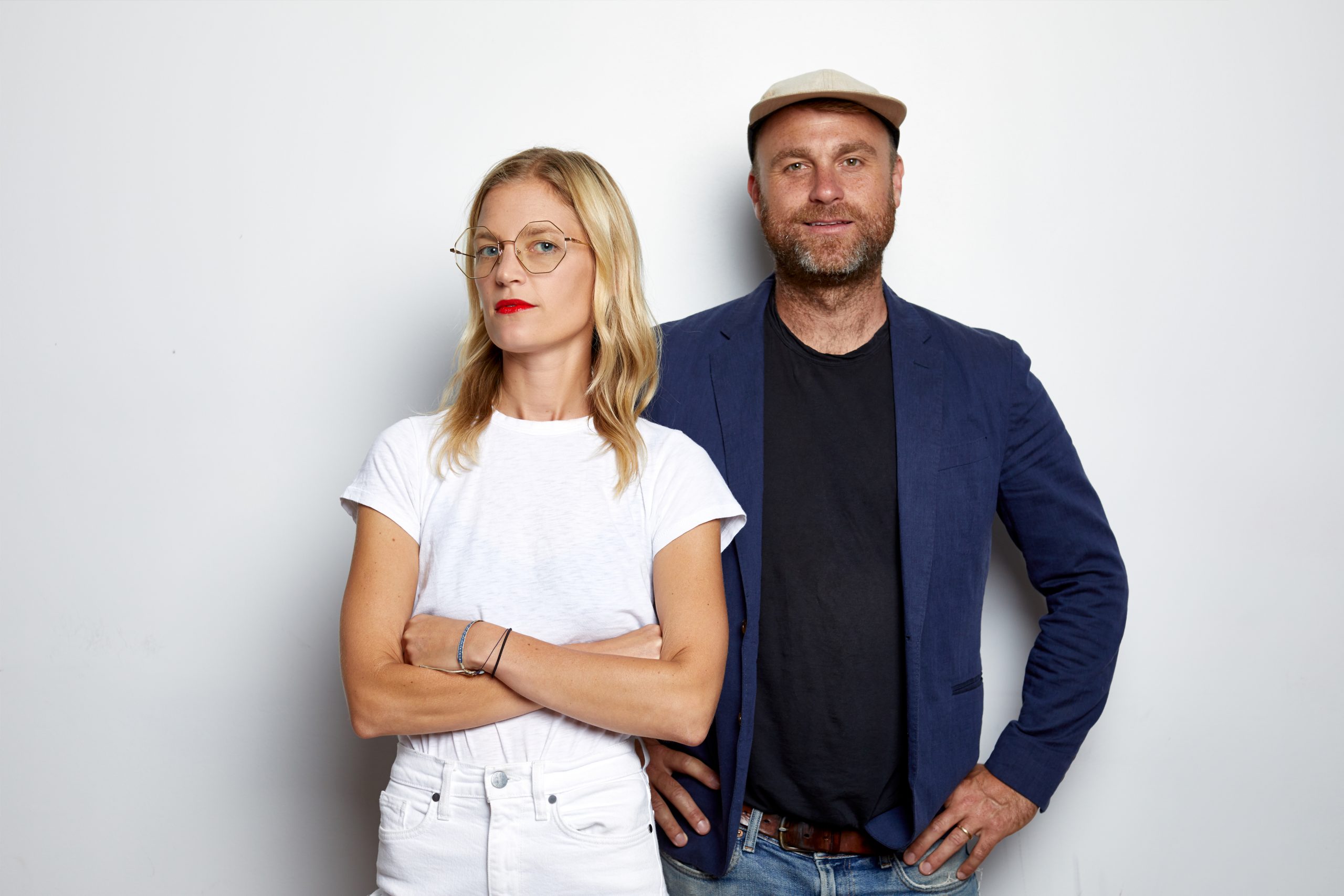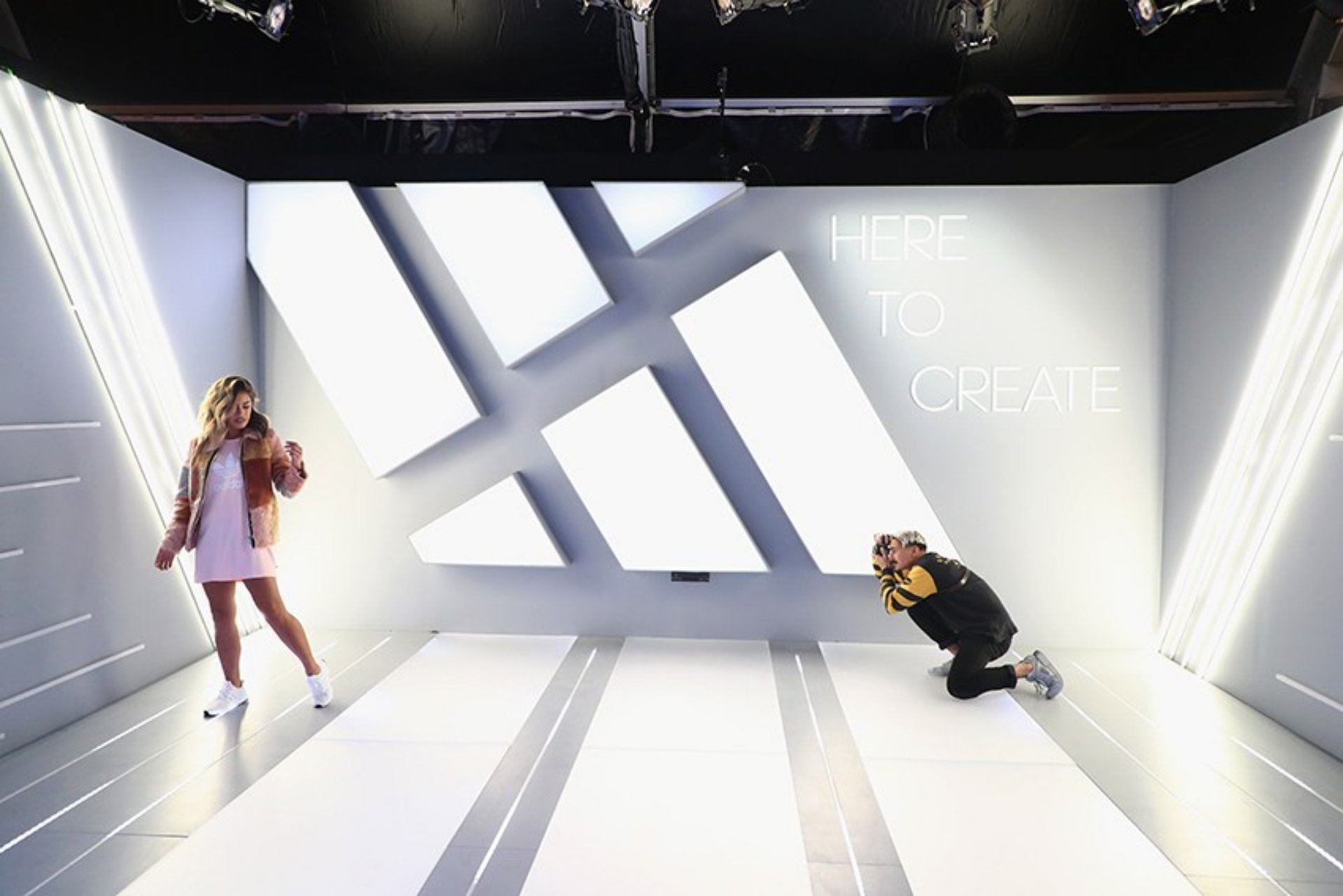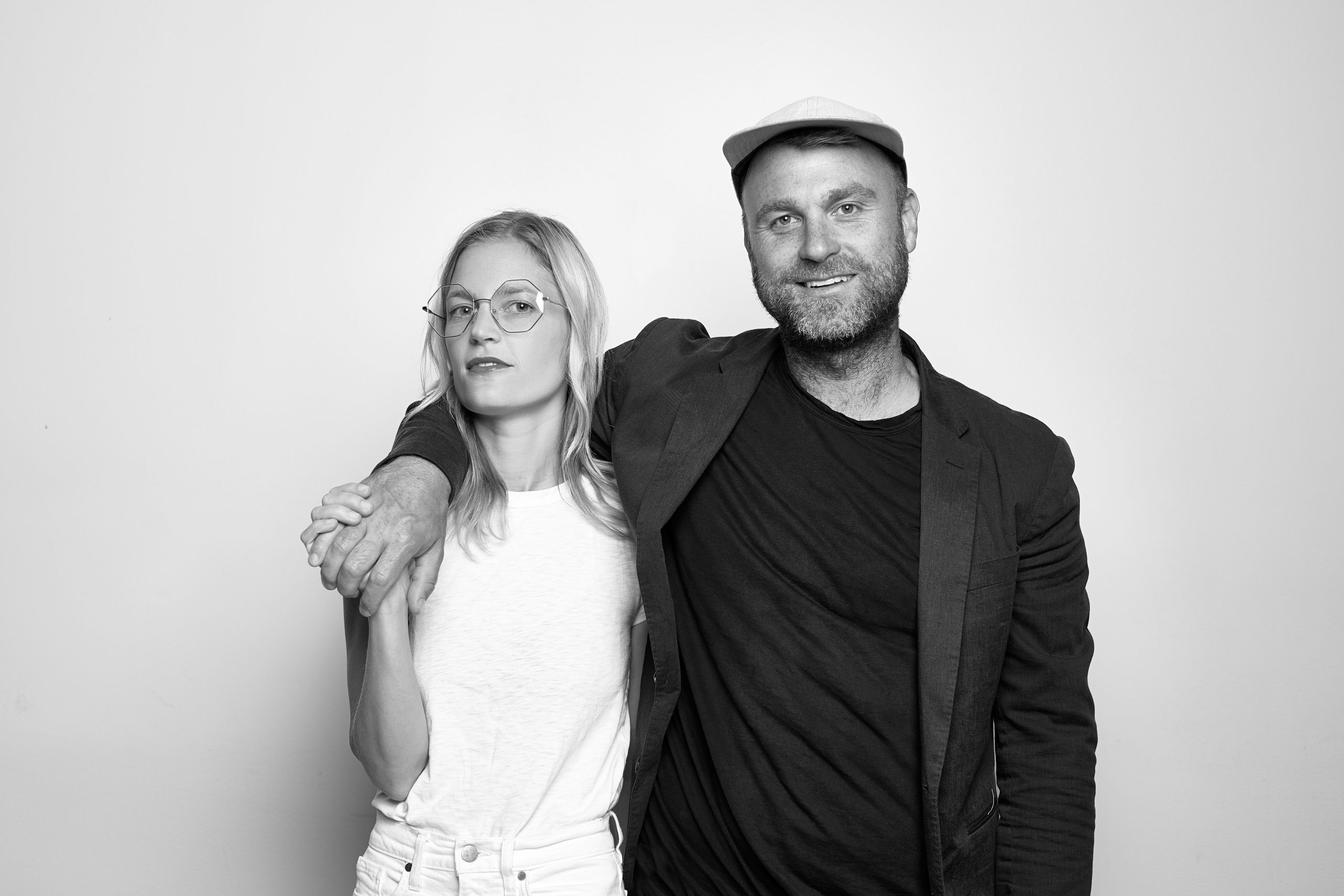
One Thousand Birds is a bicoastal sound design studio with a roster of trendy start-up clients, from Glossier and Allbirds, to Spotify and Peloton. They’ve worked on films with Netflix, The New York Times, and The New Yorker. In addition to traditional sound mixing projects, they also work in new media formats like VR and AR for clients including the Whitney Museum of American Art in Manhattan.
Husband and wife team Laura Dopp and Andrew Tracy founded the studio together. We caught up with them to talk about what makes their partnership great and why a sense of magic is key to experiential sound design.
The Vendry: How did each of you get into the field of sound design?
Dopp: I studied art history and museum studies. I was definitely more of a visual person to start out. Early in my career, I moved back and forth between representing artists for commercial work and fine artists. I spent a year in Vietnam working with 40 Vietnamese artists for a gallery there. When I got back from Vietnam, I came back to Los Angeles and a lot of the print producers I had worked with in the past were now ‘content’ producers, because the budgets for print were going down.
I was trying to figure out how to pivot into doing something differently, but I loved working with artists very closely and trying to be a voice for them and advocate for them. At the same time, I reconnected with Andrew. We had both grown up in Charleston, South Carolina and went to the same high school, but had not talked in 12 years. When we started dating, Andrew was working as the lead sound designer at his studio. I had represented so many different artists, why not sound designers? So we quit our jobs and moved to New York to start our own studio.
Tracy: I always wanted to be in the sound world. I studied sound engineering at Berklee College of Music then moved to South Carolina to record music. While there, I was asked by a friend to record sound for the movie he was making. Two friends were moving to Los Angeles so I tagged along with them. Pretty soon after moving, I got an internship where I was cutting sounds for indie horror films. So I got a lot of experience really fast, and then pretty quickly after that got hired as a freelancer at a commercial sound design company, worked my way up over the next five years to being the head sound designer and mixer there. That was about the time when Laura and I met. We saw how we could work together and how her connections in the industry could help to build something that wasn't just me.
The Vendry: It seems like you both have very complementary skill sets.
Tracy: It worked out really well. So it was just us at the beginning, for the first year, and then we hired our first sound designer and have continued to grow since then.
Dopp: We were living in L.A., but we wanted to start our studio New York, just because everything happens so quickly here, so much faster than anywhere else. So we quit our jobs, moved to New York, and found this very raw space in Bushwick. We didn't have any money, so we just found the biggest, cheapest space we could find. Andrew put in all the electricity, built the studio room, put in all the treatments. And then we started throwing parties, making art, and building this kind of clubhouse community.
At that time too, a lot of Brooklyn's production companies that were just starting out became our first clients, and then a lot of creatives who worked for some of the companies and brands and agencies in Manhattan were living right near us. We opened a little satellite mix room in Chinatown, about two and a half years in, and then had an opportunity to open a studio in L.A. with another Berklee grad, a friend of Andrew's. So we moved out there for a couple years and did that, and that one's still going strong out there. And then this year, we moved into our dream space in SoHo.
The Vendry: You have an amazing client list – MoMA, Spotify, Ford – how do you adapt to such a wide variety of clients? Do your methods for sound design differ when you're creating a piece that's experiential versus something that's going to live online and be a little bit more static?
Tracy: When we're doing sound work for ads, we're a piece of the puzzle. We are oftentimes coming in at the end of the process. We sort of polish and make sure that everything sounds good when it goes out into the world. On the interactive side of things, we're much more involved from the beginning of the concept, all the way through installation and support for the length of time that the piece is up and running. We have a network of people that we like working with, and we can reach out to them when we get asked to do things that we don't necessarily do in-house. So if that's fabricators or animators or graphic designers, or people that can just build anything, or 3D printers or 3D scanners, they become part of the creative process.
Dopp: Yes, there are a lot of unique makers in our network. Somebody that works in paper design, or has made an ice-cream machine that can stand on a table. In the last two years really that we've been heavy into these kinds of projects, we've learned a lot about what questions to ask clients right away. A lot of the experiential stuff is stuff we've never done before. So it takes a lot of research and development and time and thought, and the event might be up for just 24 hours. However, it's really fun to connect the physical and digital worlds and get to see people get excited and how intuitive these experiences can be. We try to make things work really well and be as simple as possible, so that people can just have fun.
The Vendry: What are the technologies that are on the upswing of being used in experiential sound design? VR is something that comes to mind, as a visual piece, but what are you most excited about for the future?
Tracy: VR, definitely. AR, I think it is going to happen quicker once the technology catches up to the creative. Then, on the art side of things, I'm really into body sensing. You can pull a ton of data just by having a small 3D camera with an infrared sensor in it. You don't have to put on a headset. You don't necessarily know that you're walking into an interactive space. You think, "Wow this artwork is responding to my movements, and I didn't really tell it to or have to touch a button or turn on anything. It's almost like it's…’
Dopp: Magic.
Tracy: Yeah, it's magic. That's the goal of all this, is to make people feel wonder, and feel like they're standing in front of something magical, even if it's as simple as colors changing or just making some patterns move, but it feels like it's magic when you can just wave your hands and make something happen in the real world.

Vendry: What's the most challenging part of your job?
Tracy: Managing expectations. Because yes, anything is possible, but sometimes things take a long time and they cost a lot of money. I think that's the biggest thing, keeping reasonable scopes for projects.
The Vendry: What's the biggest piece of advice you would give to someone starting out in the field of sound design?
Tracy: Build a strong team. It's really hard to do things by yourself. And take every project that you can get your hands on.
Dopp: Make things you want to see and experience.
